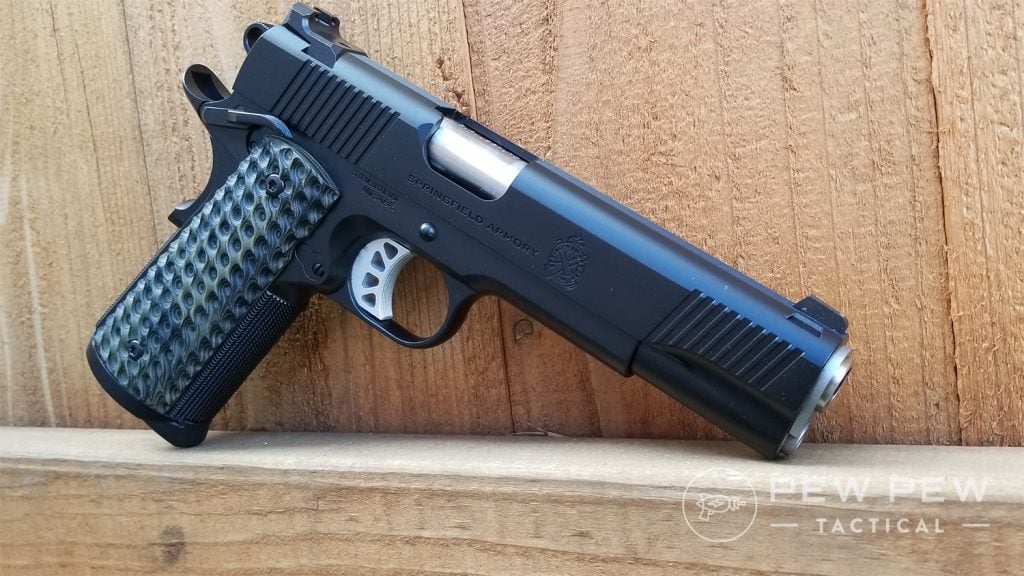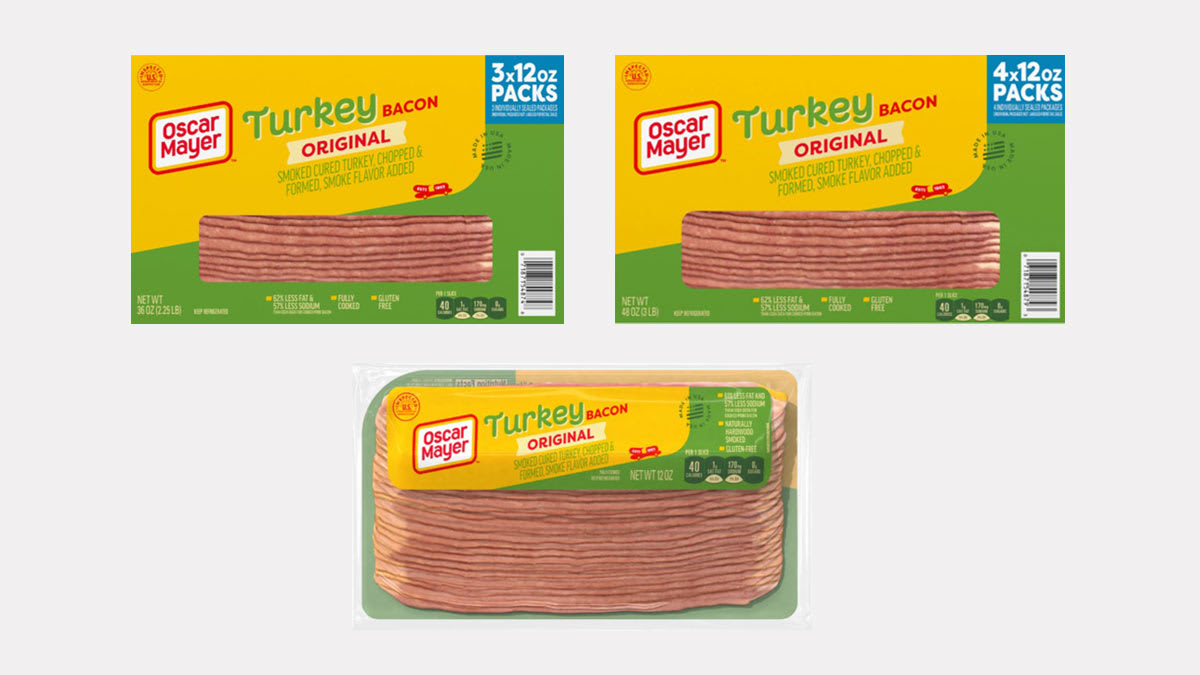News
Colt 1911 vs Competition Pistols: What Makes Them Different?
Published
3 weeks agoon
By
Anderson
When it comes to choosing between a Colt 1911 and competition pistols, gun enthusiasts often ask the same question: Which one is better and why? Whether you’re new to shooting sports or just want to understand the differences, knowing how each pistol performs can help you make the right choice. This article breaks it all down in simple terms.
What Is a Colt 1911?
The Colt 1911, often simply called the 1911 pistol, is one of the most iconic handguns in history. Designed by John Browning, it became the standard-issue sidearm for the United States Armed Forces in—you guessed it—1911. It served in both World Wars and is still popular today among military veterans, competitive shooters, and collectors.
The Colt 1911 uses a .45 ACP cartridge, and it’s famous for its single-action trigger, slim design, and all-metal frame. Many shooters love the 1911 for its solid feel, excellent accuracy, and clean trigger pull. It’s a “point-and-shoot” gun that many feel becomes an extension of your hand with practice.
Though the original Colt 1911 was built for combat, modern versions are now made for everything from self-defense to competitive shooting. There are even custom Colt 1911s designed specifically for competitions, though they often cost more than other options.
What Are Competition Pistols?
Competition pistols are handguns specially built for shooting sports. These pistols are not made for war or self-defense—they are made to win matches. Whether it’s USPSA (United States Practical Shooting Association), IDPA (International Defensive Pistol Association), or IPSC (International Practical Shooting Confederation), competitive shooting is all about speed, accuracy, and control.
Unlike standard pistols, competition guns often come with features like:
- Adjustable sights
- Compensators for recoil control
- Extended magazines
- Lightweight frames
- Custom grips and triggers
Competition pistols can come in various calibers like 9mm or .40 S&W. Many brands like Glock, SIG Sauer, CZ, and Smith & Wesson make models specifically for match shooting.
Key Differences Between Colt 1911 and Competition Pistols
Now let’s dive into the real heart of the discussion: what makes the Colt 1911 different from modern competition pistols? Here are the core factors to consider:
Accuracy and Recoil Control
Both the Colt 1911 and competition pistols can be very accurate, but the way they handle recoil is different. The Colt 1911, firing the powerful .45 ACP, has a slower recoil impulse. Many shooters say it has a more predictable recoil pattern, which can help with follow-up shots.
However, modern competition pistols are often chambered in 9mm, which has lower recoil and allows faster shooting. They may also include compensators, ported barrels, or gas systems to further reduce recoil. These tech upgrades give them a serious edge in rapid-fire events.
In short, Colt 1911 wins on smoothness, but competition pistols win on speed and control.
Weight and Balance
The Colt 1911 is an all-metal pistol, usually made of steel. This gives it a heavy, balanced feel, which many shooters love. The added weight can help reduce recoil and steady your aim.
On the other hand, competition pistols vary widely. Some are heavy like the 1911, while others use polymer frames to save weight and increase speed. Many newer pistols are also more customizable in how the weight is distributed—like adding tungsten guide rods or lightening cuts.
So, it depends on your preference: Heavy and stable (Colt 1911) vs. light and agile (competition pistols).
Custom Features
Out of the box, a standard Colt 1911 has fewer custom features compared to modern competition pistols. That said, custom 1911s for competition exist, but they often cost much more and require gunsmithing.
Competition pistols often come with:
- Optics-ready slides
- Flared magwells
- Flat-faced match triggers
- Slide serrations
- Aggressive grip textures
With a competition pistol, you’re ready to compete straight from the box in many cases. With the 1911, you may need some work done unless you buy a match-ready variant.
Which Gun Is Easier to Use?
This really depends on your experience level. For new shooters, competition pistols—especially striker-fired 9mm models—are often easier to handle. They usually have lighter recoil, higher magazine capacity, and more intuitive controls.
The Colt 1911, on the other hand, requires a bit more training. It’s a single-action pistol, which means you need to understand how to use the manual safety and manage the trigger reset properly. While it can feel amazing to shoot once mastered, it may not be the best pick for someone just starting out.
If simplicity is your goal, a competition pistol like a Glock 34, CZ Shadow 2, or SIG P320 X5 Legion will feel more “plug-and-play.”
How About Price and Upgrades?
Price is another key area where the Colt 1911 and competition pistols differ.
A basic Colt 1911 can cost around $900 to $1,200, depending on the model. A high-end or custom match 1911 can easily exceed $2,000 to $3,000. Upgrades like better sights, match barrels, and tuned triggers often require a gunsmith.
Competition pistols, especially polymer-framed ones, can start at $600 to $900 and offer more features out of the box. For instance, a Glock 34 MOS is optic-ready and doesn’t need much upgrading. The CZ Shadow 2, while more expensive (~$1,200+), is practically ready for national-level matches.
In short, Colt 1911s are more expensive to customize, while many competition pistols offer better value for the money.
What Do Pros Use in Matches?
If you watch competitive shooting matches in the U.S., you’ll see that most pros do not use the Colt 1911 anymore—unless they’re shooting in divisions like Single Stack or CDP (Custom Defensive Pistol).
Why Many Choose Competition Pistols
Modern competition pistols dominate in popular divisions like Carry Optics, Open, and Production. Their higher mag capacity, reduced recoil, and faster operation make them ideal for high-level performance.
Top shooters often prefer:
- SIG Sauer P320 X5 Legion
- Glock 34 MOS
- CZ Shadow 2
- Staccato P (for limited/LE divisions)
These guns are built for speed, consistency, and easy customization. That’s exactly what competitive shooters want.
Some Still Pick the Colt 1911
There is still a strong fan base for the Colt 1911, especially in Single Stack division competitions. The trigger is still one of the best in the handgun world. Some shooters just shoot better with the 1911’s frame and trigger feel. The 1911 also has a nostalgic, historic appeal that newer guns can’t replace.
Some match shooters also use custom 1911-style pistols made by brands like Wilson Combat, Nighthawk Custom, or Ed Brown, which are tuned to perfection.
Is the Colt 1911 Still Good Today?
Absolutely. While it may not be the top dog in most competitions today, the Colt 1911 remains a reliable, accurate, and stylish handgun. It’s also a favorite for home defense, range shooting, and collector’s value.
If you love the feel of a solid, powerful handgun with a crisp trigger, you’ll love the Colt 1911. Just keep in mind it’s not as beginner-friendly as some newer models.
How About Price and Upgrades?
Let’s break this down again in simple terms. The Colt 1911 can be pricey if you want it competition-ready. You may spend hundreds or even thousands upgrading parts like the trigger, sights, and slide.
In contrast, many modern competition pistols come with match triggers, optic-ready slides, and extended controls right out of the box. That saves you both money and time.
And when it comes to aftermarket support, both platforms have plenty. But the 1911 often requires more hand fitting and tuning, which means higher gunsmith costs.
The Bottom Line
So, what’s the real difference between Colt 1911 and competition pistols?
If you’re looking for history, power, and an amazing trigger, the Colt 1911 is hard to beat. It’s a gun that’s stood the test of time and still holds a place in the competitive world—especially in Single Stack divisions.
But if you’re aiming for speed, customization, low recoil, and ready-to-go performance, modern competition pistols clearly take the lead. They are easier to use, often cost less, and are built specifically to help you win matches.
Whether you choose the classic Colt 1911 or go with a modern competition pistol, the most important thing is to find a firearm that fits your hand, your needs, and your shooting goals. Test them if you can, and go with what feels right.
You may like
News
Will There Be a Straight Outta Compton 2? (Latest Updates Inside!)
Published
22 hours agoon
July 23, 2025By
Anderson
Straight Outta Compton” was more than a movie—it became a cultural phenomenon. Fans of N.W.A. and hip-hop history still talk about its raw, emotional storytelling, and now there’s one burning question: Will there be a Straight Outta Compton 2? Rumors, leaks, and fan theories are flying everywhere. Let’s break it all down, explore the possible sequel, and see what’s next for the N.W.A. legacy.
What Is Straight Outta Compton 2 About?
While Universal Pictures has yet to officially confirm Straight Outta Compton 2, there’s plenty of speculation about what a sequel could cover. Many fans believe it would explore the rise of West Coast rap beyond N.W.A., focusing on artists like Snoop Dogg, Tupac Shakur, and the Death Row Records era.
The first film ended around 1996, after Eazy-E’s death and Dr. Dre leaving Death Row. A sequel could pick up from there, showing the impact of Tupac’s life and tragic death, Snoop’s rise to stardom, and how Dr. Dre built his Aftermath label. This would give fans a deeper look into hip-hop’s golden era and show how the legacy of N.W.A. paved the way for the next generation.
Some rumors even suggest the sequel could include Dre’s later years with Eminem and 50 Cent, but others argue the focus should stay on the ’90s West Coast scene. Either way, Straight Outta Compton 2 has potential for a gripping story that combines music, fame, and real-life drama.
Is There a Release Date for Straight Outta Compton 2?
As of now, there is no official release date for Straight Outta Compton 2. Universal hasn’t made any announcements, but several interviews hint that a follow-up is not off the table. In past conversations, Ice Cube mentioned a possible sequel focusing on the “hip-hop family tree” after N.W.A., which could mean fans aren’t imagining things when they hope for part two.
If the film gets greenlit, we might expect a release as early as 2026, considering production timelines, casting, and the scale of such a project. But until official word arrives, all we can do is watch and wait.
Who Could Be in the Cast of Straight Outta Compton 2?
The first film’s cast delivered stunning performances, and a sequel would need both familiar faces and fresh talent to bring iconic figures to life again.
Will Dr. Dre Return?
Corey Hawkins’ portrayal of Dr. Dre won critical praise, and fans would likely want him back to continue Dre’s story—this time navigating his Death Row years and Aftermath success. Dr. Dre himself could also appear in cameo form or even advise on production like he did before.
New Faces for Tupac and Snoop Dogg?
Since Tupac was briefly portrayed by Marcc Rose in Straight Outta Compton, a larger role would require a talented actor to fully embody Pac’s complex character. As for Snoop Dogg, Lakeith Stanfield was rumored years ago but nothing was confirmed. Whoever takes on these roles would carry huge expectations from fans.
Cameos from Real-Life Rappers?
One exciting possibility is cameos from real-life hip-hop legends. Imagine Snoop, Dre, or even Eminem appearing briefly as older versions of themselves. Not only would this excite fans, but it would also strengthen the connection between the movie and the real people who lived the story.
What Are Fans Saying About Straight Outta Compton 2?
Social media is full of debates about Straight Outta Compton 2. Fans on Twitter and Reddit are asking if the story should continue or if the original should remain untouched. Many argue there’s “too much left unsaid” about Death Row Records and West Coast hip-hop’s evolution not to explore it on screen.
Memes and fan posters have already surfaced, showing how eager the hip-hop community is for part two. One Reddit thread even suggested splitting the sequel into two films to cover Tupac and Snoop’s stories separately. Whether these are wishful thoughts or predictions remains to be seen.
Will There Be a Trailer Soon?
With no official production announcement, a trailer is unlikely any time soon. But keep your eyes on Universal’s social media channels. If the sequel gets the green light, we might see a teaser in late 2025. Fans should also watch for leaks—remember, the original film’s trailer shocked everyone when it dropped unexpectedly.
Other Movies Like Straight Outta Compton 2
While waiting for updates on Straight Outta Compton 2, there are plenty of other films that capture the same energy and storytelling about music and culture.
Best Hip-Hop Biopics to Watch Now
- All Eyez on Me (Tupac’s story)
- Notorious (The Notorious B.I.G.’s life)
- 8 Mile (loosely based on Eminem’s rise)
- Get Rich or Die Tryin’ (50 Cent’s story)
Why Fans Love Music History Films
These films resonate because they mix powerful music with raw, emotional journeys. Fans love seeing how their favorite artists overcame struggles and changed culture forever. Biopics inspire not just music lovers but anyone chasing their dreams.
Thoughts on Straight Outta Compton 2
If Straight Outta Compton 2 follows this trend, it could become one of the greatest hip-hop films ever. It has the foundation, characters, and fan base needed to make a cultural impact again.
About Straight Outta Compton 2
Though unofficial for now, Straight Outta Compton 2 is shaping up to be one of the most talked-about potential sequels in years. It’s not just a movie idea—it’s a chance to honor a pivotal chapter in music history. Fans hope Universal Pictures and the original team return to bring this vision to life.
The Bottom Line
So, will there be a Straight Outta Compton 2? The answer is still unclear, but the demand is loud and growing. Whether it’s a sequel, spin-off, or even a limited series, one thing’s for sure: fans want more. The first film reminded the world how powerful hip-hop storytelling can be. A follow-up could elevate it further, giving a voice to the legends who defined a generation.
Until then, we’ll keep listening to the beats, revisiting the original, and hoping that Universal answers the call. Stay tuned for updates—you won’t want to miss them.
News
Oscar Mayer Turkey Bacon: A Tasty and Healthy Breakfast Choice
Published
22 hours agoon
July 23, 2025By
Anderson
If you’re searching for a delicious, healthier alternative to traditional bacon, Oscar Mayer Turkey Bacon could be the perfect option for you. Loved by families across the United States, it’s easy to cook, lower in fat, and still delivers that smoky, savory flavor bacon fans crave. But what exactly is it? Is it as healthy as it seems? And how can you make the most out of it in your meals? Let’s explore everything about Oscar Mayer Turkey Bacon in detail.
What Is Oscar Mayer Turkey Bacon?
Oscar Mayer Turkey Bacon is a smoked, cured turkey product designed to taste like traditional pork bacon but with significantly less fat and fewer calories. It’s made from chopped, formed turkey meat that’s seasoned and then smoked to give it a flavor very similar to regular bacon. Unlike traditional bacon strips that come from pork belly, turkey bacon uses leaner cuts of turkey, which is why it’s a favorite for health-conscious eaters.
This turkey bacon comes pre-cooked, meaning you can quickly heat it in a skillet, oven, or even the microwave in just minutes. It’s especially popular in the United States, where families enjoy it as a part of breakfasts, sandwiches, salads, and even as a snack.
Why Do People Love It?
There are many reasons why Oscar Mayer Turkey Bacon has become a staple in American kitchens. For one, it provides a guilt-free way to enjoy the smoky flavor of bacon without overloading on saturated fat. Its convenience is another major selling point. You don’t have to deal with splattering grease or long cook times like you would with regular bacon.
Additionally, turkey bacon has a versatility that makes it a favorite among busy parents and health-focused individuals alike. Whether it’s adding a crispy crunch to your BLT or wrapping it around asparagus for a quick appetizer, this product fits easily into countless recipes.
Is It Healthy to Eat Every Day?
This is one of the most common questions people ask: can I eat Oscar Mayer Turkey Bacon daily? The answer depends on your overall diet and health goals. Turkey bacon is lower in fat and calories compared to pork bacon, making it a better choice for those watching their weight or cholesterol levels. However, like most processed meats, it contains sodium and preservatives, which means moderation is key.:max_bytes(150000):strip_icc()/Oscar-Mayer-Bacon-Recall-FT-BLOG0725-5487d56caf754cff912e871fc609878f.jpg)
When eaten occasionally as part of a balanced diet, turkey bacon can be a tasty, protein-rich addition to your meals. If you’re relying on it daily, pair it with plenty of fresh fruits, vegetables, and whole grains to ensure you’re getting a wide range of nutrients.
Low Fat and Fewer Calories
One of the standout benefits of Oscar Mayer Turkey Bacon is its nutritional profile. With only about 35 calories per slice and 2.5 grams of fat, it’s an excellent swap for pork bacon, which often has over 80 calories and 7 grams of fat per slice. This makes it ideal for those following low-fat or calorie-restricted diets.
Good for Quick Meals
Since it’s already fully cooked, turkey bacon is perfect for busy mornings or last-minute meal prep. Just pop it in the microwave for 20–30 seconds, and it’s ready to enjoy. This convenience is one of the top reasons families prefer it over traditional bacon.
Great for Kids’ Lunchboxes
Parents love adding Oscar Mayer Turkey Bacon to their kids’ lunchboxes. It’s not greasy, doesn’t have a strong odor, and kids enjoy its mild, smoky flavor. Plus, you can roll it up with cheese or use it in wraps for a fun, protein-packed snack.
How to Cook Oscar Mayer Turkey Bacon
Cooking Oscar Mayer Turkey Bacon couldn’t be easier. Since it’s fully cooked, your goal is simply to heat it to your desired crispiness.
- Skillet: Heat a non-stick skillet over medium heat. Place bacon slices in a single layer and cook for about 4–6 minutes, turning occasionally until crisp.
- Microwave: Place 2 slices between paper towels on a microwave-safe plate. Heat on high for 20 seconds per slice. Add more time if you like it extra crispy.
- Oven: Preheat your oven to 400°F. Place slices on a baking sheet lined with parchment paper. Bake for about 8–10 minutes.
Best Ways to Eat Oscar Mayer Turkey Bacon
Turkey bacon isn’t just for breakfast. Its mild yet smoky flavor makes it versatile for all kinds of meals:
- BLTs: Replace pork bacon with turkey bacon for a healthier BLT sandwich.
- Salads: Chop crispy strips into bits and sprinkle over salads for extra crunch and flavor.
- Wraps and Rolls: Use turkey bacon to wrap around asparagus, chicken tenders, or jalapeño poppers.
- Egg Dishes: Pair it with scrambled eggs, omelets, or breakfast burritos.
- Snacks: Enjoy a few slices with apple wedges or cheese sticks for a satisfying snack.
Is Oscar Mayer Turkey Bacon Gluten-Free?
Yes, Oscar Mayer Turkey Bacon is gluten-free, making it a safe choice for individuals with celiac disease or gluten sensitivity. The product does not contain wheat, barley, or rye, and it’s processed in a way that avoids gluten contamination. Always check the packaging for the most current allergen information, but as of now, it’s considered a gluten-free food.
Also Free from Common Allergens
Besides being gluten-free, Oscar Mayer Turkey Bacon is also free from major allergens like nuts, dairy, and soy. This makes it an inclusive option for families with multiple dietary restrictions.
Where to Buy Oscar Mayer Turkey Bacon
Oscar Mayer Turkey Bacon is widely available in grocery stores across the United States, including Walmart, Target, Kroger, and Safeway. You can also purchase it online through retailers like Amazon Fresh and Instacart.
Quick and Easy to Cook
Another reason it’s so popular? Even beginner cooks can prepare it perfectly. No need for oil or butter since the slices are lean and won’t splatter like pork bacon.
Thoughts on Oscar Mayer Turkey Bacon
Oscar Mayer Turkey Bacon has earned its reputation as a healthier alternative to regular bacon. It’s tasty, versatile, and ideal for those looking to cut back on fat and calories without sacrificing flavor. While it’s not completely free of sodium or preservatives, eaten in moderation, it can be a smart addition to a balanced diet.
The Bottom Line
If you’re craving the taste of bacon but want a lighter, healthier option, Oscar Mayer Turkey Bacon is an excellent choice. It’s lower in fat and calories, gluten-free, kid-friendly, and incredibly easy to prepare. Whether you’re making breakfast, lunch, or dinner, this turkey bacon delivers on flavor and convenience. Just remember to enjoy it as part of a varied, nutrient-rich diet for the best health benefits.
News
Frederick K. C. Price Children: Meet the Family of the Famous Pastor
Published
23 hours agoon
July 23, 2025By
Anderson
Frederick K. C. Price, a name known to millions across the United States and beyond, left behind not just a legacy of faith but also a beautiful family who loved and supported him throughout his journey. Many people today are curious about Frederick K. C. Price’s children, wondering who they are, what they do, and whether they followed in their father’s footsteps. In this article, we’ll explore every detail about the late pastor’s children, offering insights into their lives, roles in the church, and personal stories.
Who Are Frederick K. C. Price’s Children?
Frederick K. C. Price and his beloved wife, Dr. Betty Price, were married for over 60 years, and during their marriage, they were blessed with two children: a son and a daughter. Their son is Frederick K. Price Jr., and their daughter is Angela Evans. Both children grew up deeply influenced by their father’s strong Christian faith, his dedication to ministry, and his passion for helping others.
While Pastor Price was often in the public eye because of his sermons and television broadcasts, his children mostly lived quieter lives. However, as we’ll see, their lives still reflect their father’s values and teachings in different ways.
How Many Kids Did Pastor Frederick K. C. Price Have?
Frederick K. C. Price and Betty Price had two children together. These two children—Frederick Jr. and Angela—formed the core of the Price family. Growing up in a household filled with faith and love, they were raised with strong Christian principles. Pastor Price and his wife were devoted parents who prioritized their family despite their busy schedules in ministry.
Meet Their Son – Frederick K. Price Jr.
Following in His Father’s Footsteps
Frederick K. Price Jr., often affectionately called “Fred Jr.,” has become a familiar name to many members of the Crenshaw Christian Center, the church founded by his father in Los Angeles. From a young age, Fred Jr. showed interest in ministry and leadership. Watching his father preach and guide thousands of people inspired him to walk the same path.
As an adult, Frederick Jr. took on greater responsibilities in the church. He was mentored directly by his father, learning not just the art of preaching but also how to lead with humility and integrity. Today, Fred Jr. is recognized for his heartfelt sermons and his ability to connect with younger generations, carrying forward his father’s mission of spreading the gospel.
Leading the Church Today
After Frederick K. C. Price Sr. retired, his son stepped into the role of senior pastor at Crenshaw Christian Center (CCC). This transition wasn’t always easy. Like his father, Fred Jr. faced challenges and criticism but continued to lead the church with passion and dedication. Under his leadership, CCC has grown even more diverse and inclusive, reaching new audiences both locally and globally.
His approach combines traditional teachings with modern methods, such as using social media and digital platforms to share sermons and church events. This has helped him engage younger churchgoers while still respecting the legacy his father built.
His Personal Life
Frederick K. Price Jr. is also a family man. He is married and has children of his own, which means the Price family legacy continues through yet another generation. While he tends to keep his private life out of the public spotlight, it’s clear that family remains a central part of his world, just as it was for his father.
Meet Their Daughter – Angela Evans
Angela Evans, the daughter of Frederick and Betty Price, chose a different path from her brother and father. While not as active in church leadership, Angela has remained a beloved member of the Price family and the Crenshaw Christian Center community.
Angela’s life has mostly been private, with limited public appearances or media coverage. However, people who know her describe her as a woman of strong faith and deep kindness. She has occasionally been seen at church events, supporting her brother and the family ministry. Like her mother, she is known for her warmth and generosity towards others.
Frederick K. C. Price’s Family Life
Frederick and Betty Price created a family environment filled with love, faith, and discipline. Despite the demands of leading a megachurch and running a nationwide TV ministry, Pastor Price never compromised on spending quality time with his wife and children. Family dinners, vacations, and attending their children’s milestones were all part of their lives.
This emphasis on family is something both Fred Jr. and Angela have carried into their own homes. The Prices valued education, community service, and spiritual growth, instilling these principles in their children from a young age.
Did Frederick K. C. Price’s Children Continue His Work?
Frederick Jr.’s Role in the Church
Yes, Frederick K. Price Jr. has directly continued his father’s work by serving as the senior pastor of Crenshaw Christian Center. His sermons often echo his father’s bold, Bible-based teaching style, but he has also brought fresh perspectives relevant to today’s world. Fred Jr. has become an influential voice in the Christian community, ensuring the church’s mission lives on.
Angela’s Life Outside the Spotlight
Unlike her brother, Angela Evans has not pursued a role in church leadership. She leads a more private life, and little information is publicly available about her career or personal projects. Still, her support for the family and church is evident in the few times she has appeared at major events. Angela’s life reminds us that contributing to a legacy doesn’t always require standing on a stage.
Facts About Frederick K. C. Price’s Kids
- Frederick K. Price Jr. was officially installed as CCC’s senior pastor in 2009.
- Both children grew up involved in church activities from a young age.
- Angela Evans is married and has children, but she avoids public attention.
- Fred Jr. has a reputation for being approachable and relatable to younger church members.
- The Price family remains one of the most respected families in American Christianity.
Thoughts on Frederick K. C. Price’s Children
Frederick K. C. Price’s children, Frederick Jr. and Angela, reflect two different ways of carrying forward their father’s legacy. While Fred Jr. leads the church into a new era, Angela provides support from behind the scenes. Together, they honor their parents’ decades of service and commitment to faith. Their lives show us that a strong family foundation can shape generations to come.
The Bottom Line
Frederick K. C. Price was not only a legendary pastor but also a devoted husband and father. His children—Frederick K. Price Jr. and Angela Evans—each play unique roles in upholding the family’s values. Fred Jr. continues to preach and lead, while Angela chooses a quieter life. Both, however, embody the teachings and principles instilled in them by their parents. As time goes on, the Price family legacy remains strong, inspiring countless people across the United States and the world.

Will There Be a Straight Outta Compton 2? (Latest Updates Inside!)

Oscar Mayer Turkey Bacon: A Tasty and Healthy Breakfast Choice

Frederick K. C. Price Children: Meet the Family of the Famous Pastor

TuGuiaUSA.com, Empleos y Oportunidades en USA

Camille Monfort, Shadows of the Crimson Moon

Breaking News: Tea Leoni and Tim Daly Announce Split
Trending
-

 Business7 months ago
Business7 months agoTuGuiaUSA.com, Empleos y Oportunidades en USA
-

 Life Style8 months ago
Life Style8 months agoCamille Monfort, Shadows of the Crimson Moon
-

 Life Style7 months ago
Life Style7 months agoBreaking News: Tea Leoni and Tim Daly Announce Split
-

 Games7 months ago
Games7 months agoUnlocking Access to Unblocked Games World at School
-

 Life Style8 months ago
Life Style8 months agoJulio Urias Wife: Inside His Life with Daisy
-

 Life Style7 months ago
Life Style7 months agoIgAnony: The Anonymous Instagram Story Viewer
-

 Education8 months ago
Education8 months agoTribute Printed Pics: A Special Way to Remember
-

 Life Style7 months ago
Life Style7 months agoMichael Ciminella: Biography, Age, Net Worth & Career Highlights

